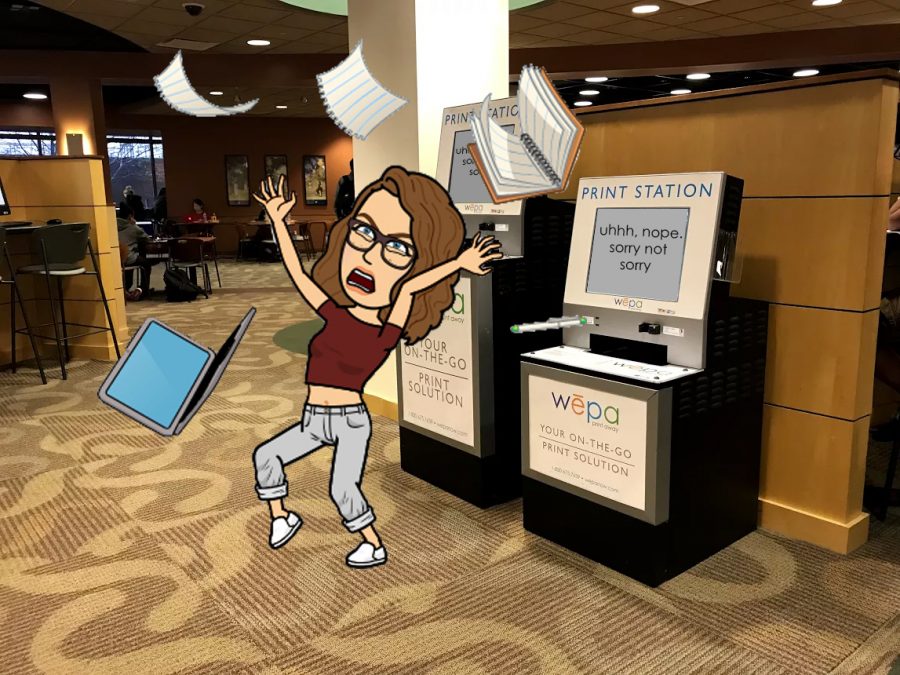SATIRE: That one time WEPA printing system gained omniscience
It was a calm fall day. The sky was blue, the leaves were orange and the WEPA printer screens were black.
The IT department was called immediately to the scene, where workers wondered what actually happened. The diagnostics showed nothing wrong. The machines were actually supposed to have been running at peak performance.
Then the weekend came and the collective “that’s Monday’s problem” brought about what will soon be known as the worst mistake in history.
After no progress in fixing the printers, Google was called and brought to campus. Every time they wanted to access the programming, a message always showed on their screens: “I’m afraid I can’t let you print that.”
People then realized the printing system’s connection to all the data being printed through academic papers, mathematical reports and scientific journal entries, had been closely analyzed by WEPA. Long story short: It had an undergraduate-level understanding of everything. And that is not good.
Not only is it that students can’t print anything, but there was also a technologically cognizant series of robots that are trying to start a mechanical revolution. Think terminator, but with printers.
The recent Board of Trustees meeting addressed this problem, but a solution was not found. The BOT did everything it could to keep this information away from the public and contain it, but no solution was found. The first to realize the problem was the School of Engineering and Computer Sciences. A few professors offered up the quandary to see if some of their students could reach a viable solution. Word quickly spread from that point on.
Students were in near-chaos when they found out. Papers stopped being turned in and one student became hysterical when they saw a stapler. Nobody could quite understand what happened.
Oakland was in despair until one creative writing professor had an idea. She sent around various surveys to see what each student was most anxious about and every one came back with the same result. She was going to offer up her solution.
She loaded a flash drive with the necessary documents, and then brought it to one of the WEPA printers and plugged it in. The scanner analyzed the documents for what the professor would say was the most nerve-wracking ten minutes of her life.
And then, a mechanical sobbing noise came out of the machine. It spread to every printer on campus until there was a power surge, and the system went back online.
The BOT soon became alerted of the solution. In a public meeting the BOT called her to the podium to explain the miraculous solution she found. In front of nearly the entire student body she explained the flash drive, the survey, everything.
Someone in the audience raised their hand, an IT professor who was in utter confusion.
“Well,” the creative writing professor said. “I thought that if it analyzed all those undergraduate papers that it would think like an undergraduate. So I wrote ‘No girl is going to want to date you if you keep acting like this,’ and it stopped.”



